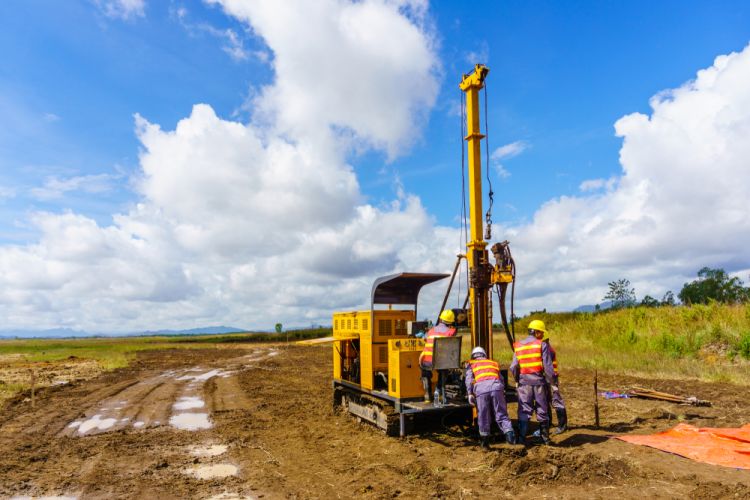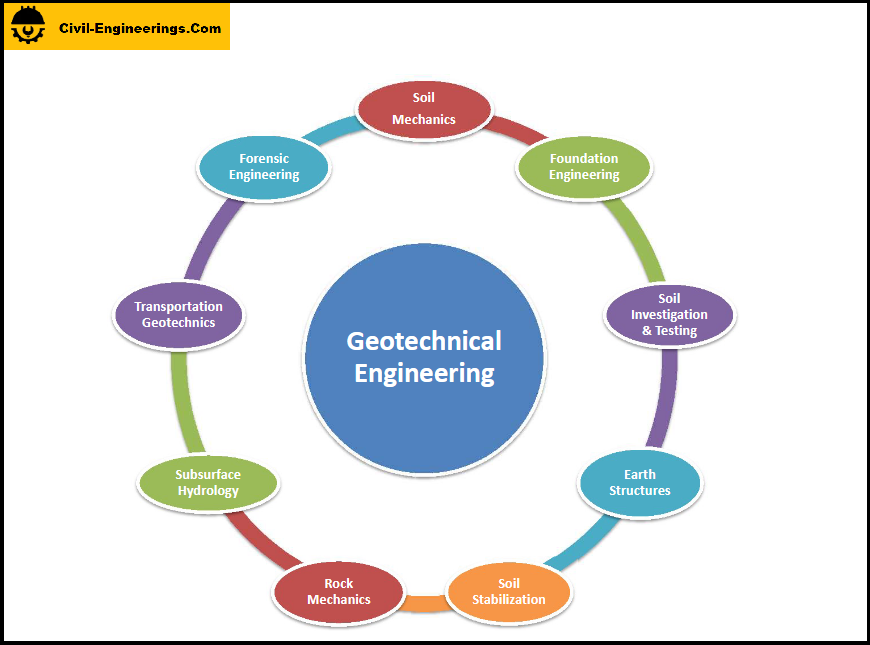Not known Incorrect Statements About Specialized Geotechnical Engineering Solutions
Table of ContentsIndicators on Specialized Geotechnical Engineering Solutions You Should KnowThe Of Specialized Geotechnical Engineering SolutionsSpecialized Geotechnical Engineering Solutions Fundamentals ExplainedSpecialized Geotechnical Engineering Solutions Things To Know Before You Get This
They conduct site investigations, accumulate examples, execute lab examinations, and analyze data to evaluate the viability of the ground for building and construction jobs. Based on their searchings for, geotechnical engineers provide recommendations for foundation layout, incline stability, maintaining structures, and mitigation of geotechnical dangers. They work together with various other professionals, such as architects, structural engineers, and building teams, to guarantee that geotechnical factors to consider are incorporated right into the overall project layout and application.
Structure Style: Geotechnical engineers play an important duty in making foundations that can securely support the intended framework. They analyze the dirt conditions and load needs to establish the proper foundation type, such as superficial structures (e.g., footings), deep structures (e.g., stacks), or specialized techniques like dirt renovation. They think about aspects such as negotiation limits, birthing capacity, and soil-structure communication to establish ideal structure styles.
Unknown Facts About Specialized Geotechnical Engineering Solutions
Right here are some kinds of geotechnical designers: Foundation Designer: Structure engineers focus on making and assessing foundations for frameworks - Specialized Geotechnical Engineering Solutions. They assess the dirt problems, load requirements, and website characteristics to figure out one of the most suitable structure type and style, such as superficial structures, deep structures, or specialized strategies like heap foundations
They execute area testing, collect samples, and assess the collected information to identify the dirt homes, geologic developments, and groundwater conditions at a site. Geotechnical Instrumentation Engineer: Geotechnical instrumentation designers concentrate on tracking and determining the habits of dirt, rock, and structures. They mount and maintain instrumentation systems that check aspects such as dirt negotiation, groundwater levels, incline activities, and architectural displacements to evaluate performance and offer very early cautions of possible problems.
In the office setting, geotechnical engineers use specialized software application tools to do estimations, create layouts, and assess information. Specialized Geotechnical Engineering Solutions. They prepare reports, testimonial task specs, connect with customers and staff member, and coordinate task tasks. The workplace setting offers a helpful environment for research, evaluation, and partnership with various other specialists associated with the job
They often go to task sites to conduct website examinations, examine geotechnical conditions, and gather data for analysis. These sees involve taking a trip to different places, in some cases in remote or challenging terrains. Geotechnical designers may do dirt sampling, conduct examinations, and monitor construction activities to make certain that the geotechnical elements of the task are being implemented appropriately.
Some Of Specialized Geotechnical Engineering Solutions
Geotechnical engineers likewise work in specialized geotechnical laboratories. Geotechnical research laboratory engineers function thoroughly in these atmospheres, handling testing equipment, running tools, and recording data.
Keeping Walls: Developing walls that hold back dirt to avoid landslides and provide stability on sloped surfaces. Embankments and Earthworks: Designing embankments for roads, trains, and dams to guarantee they stay stable under tension. The mining industry counts heavily on geotechnical engineering to make certain the security and durability navigate to this website of its operations.
With this in mind, we have actually made our program to prepare pupils for success. The Geotechnical Design program at the University of Delaware offers possibilities for advanced study and research in: Dirt and rock mechanics Soil-structure interaction Constitutive modeling Computational geomechanics Foundation and earth structures engineering Ground renovation Incline security and landslide stablizing Liquefaction of dirts and earthquake design Lab characterization of geomaterials and soil support Ecological geotechnics Offered the strong requirement for Read Full Report renovation to our country's infrastructurethe American Culture of Civil Engineers offered the united state
Geotechnical engineering is a branch of civil design; nevertheless, it involves utilizing scientific approaches and principles to accumulate and translate the physical homes of the ground. Geotechnical engineers are associated with all stages of the design of frameworks, from concept to building and construction. Their work is important in the layout and planning procedure as they examine the integrity of dirt, clay, silt, sand, and rock, prior to building and construction beginning.
What Does Specialized Geotechnical Engineering Solutions Do?
This is complied with by a ground examination based upon the findings of the desk research study and includes trial pitting and sampling to uncover any potential issues. Geotechnical designers function within multidisciplinary groups, supported by intermediate and younger engineers as well as by CAD specialists. As a senior geotechnical engineer on a hydro plant task, jobs might include joining technical reviews (e.g., peer testimonials), tailings clog assessments, dam security evaluations, and other researches associated with the style and building of mine waste facilities.
While some specialists are experts entirely in geotechnics, others may function under titles like engineering geologist or ground designer within similar capacities. As a geotechnical designer, you'll need to: build and keep connections with clients and various other experts involved in the site, throughout each projectmaintain safety criteria on site bear in mind price ramifications when you make recommendationsstudy geological maps and airborne photos from a variety of resources and from different time periodsexamine building and construction prepares to see how viable they are based on your understanding of the siteinvestigate threats or geological dangers for the sitesearch for ecologically delicate features, such as land fill begin to develop accurate and interpretive ground modelsplan area investigationsdrill and analyse samples of bedrock, dirt, groundwater and extra products monitor various other professionals on sitesolve technological issues as they develop, such as unexpected frameworks at drill sitesmonitor problems throughout and after building to make sure structures are secure in the short and lengthy termadd information gathered on website to your initial researchcreate geotechnical computations, illustrations, and two or three-dimensional computer versions interpreting the datamake suggestions concerning the proposed use the website.
There are great deals of chances to fulfill new people, as you'll work with a series of professionals at every site. The work can be difficult as you might be responsible for the security of others while on site. There Bonuses is additionally a high degree of financial responsibility, as the suggestions you make can have severe price implications.
